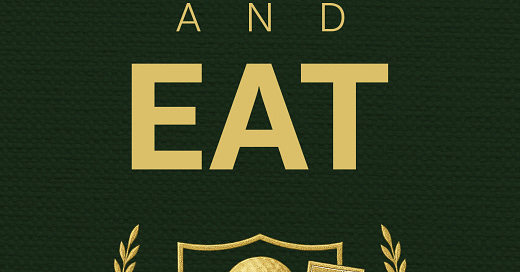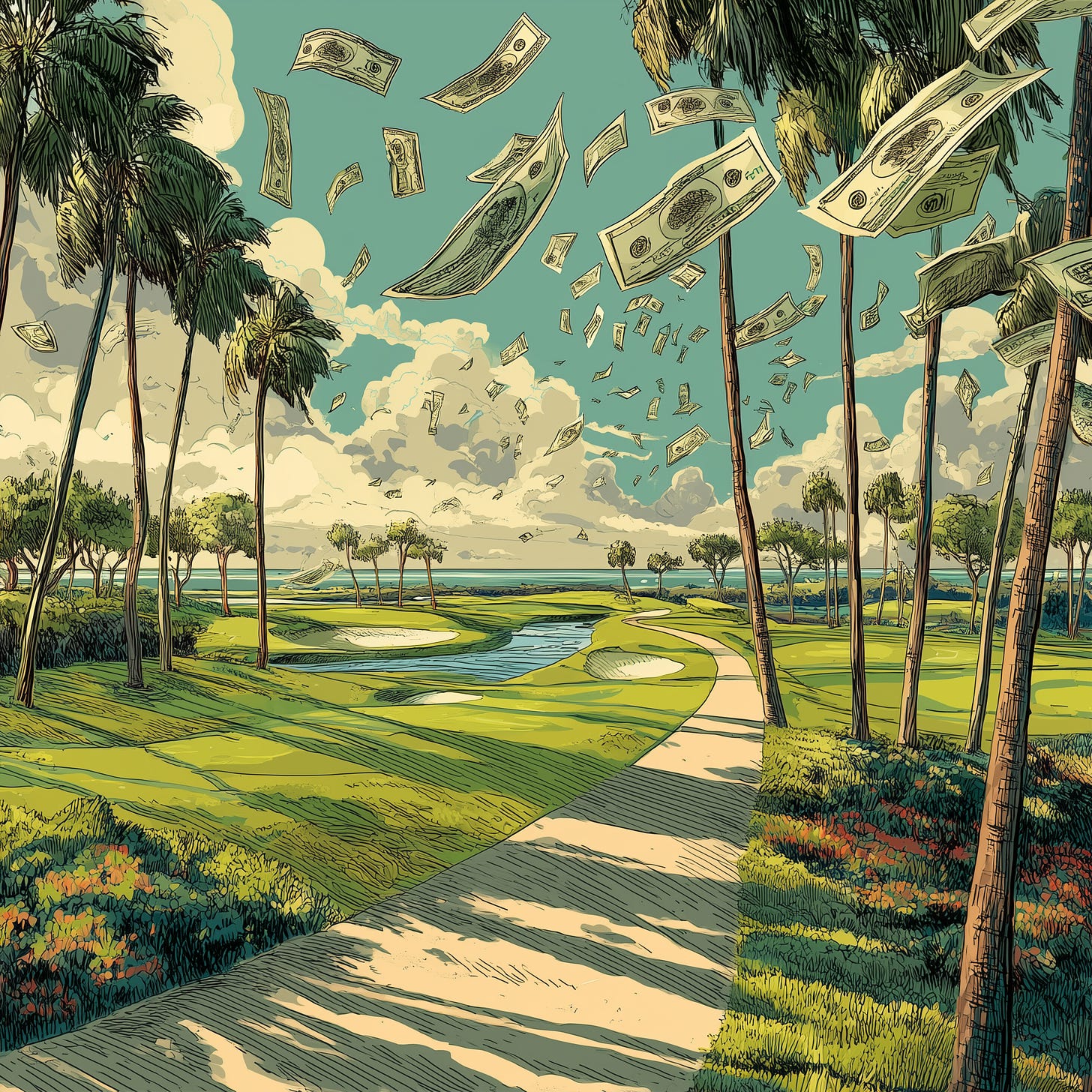The Great De-Skilling
Let's cut to the chase: your hard-earned skills are on a collision course with irrelevance. The expertise you spent years building is being devalued overnight.
Twenty years ago, a Leica and a darkroom were the daunting entry fees to photographic mastery. Today, any kid with an iPhone 15 Pro and a VSCO filter can shoot images that would make Helmut Newton do a double-take and likely get more likes than Ansel Adams ever dreamed of.
The twist? This isn't a tragedy. It's the arbitrage opportunity of a lifetime.
The $25 Burger Principle
In 1980, the difference between a fast-food burger and a high-end restaurant burger was 3x in price. Today, it's 10x.
Making an adequate burger became trivially easy. McDonald's, Shake Shack, and Five Guys all deliver perfectly acceptable burgers. The $25 burger isn't five times better; it's marginally better in ways that certain customers care about intensely. The artisanal bun, the grass-fed beef, the "vibe." It's about taste, not just visual appeal or fleeting trends, but a deep understanding of what truly matters to a specific audience.
The difference between good and great isn't skill anymore. It's specificity.
This same force is reshaping creative work. When sophisticated tools help anyone create decent work, the premium shifts to those with vision to create something truly distinctive. It's the difference between a Spotify playlist curated by an algorithm and one crafted by a DJ who knows exactly when to drop that forgotten B-side that makes the entire room lose their minds.
An algorithm gives you good enough. A human with taste gives you holy shit, I never thought of it that way.
The Expertise Arbitrage
The internet promised to democratize expertise, and it delivered with the brutal efficiency of a private equity firm. When everyone's an expert, no one is. In that gap between what is possible to create and what's worth creating lies the real opportunity.
Taste isn't aesthetic preference. It's applied expertise.
It's understanding that watch collectors care more about case thickness than complications. It's knowing how quickly a golf match can descend into chaos if the dollar values and carryovers aren't crystal clear from the first tee. It's recognizing that your neighbor wants simple recipes, not molecular gastronomy.
Here's how this works in practice:
❌ Bad taste: Creating a golf app because "there should be an app for that."
✅ Good taste: Creating a Nassau scorecard because you've watched grown men argue about presses while holding up the entire course.
❌ Bad taste: Writing about "productivity optimization."
✅ Good taste: Writing about why founders make terrible decisions at 3 AM when their kids are sick.
❌ Bad taste: Starting a watch newsletter because Rolex is hot.
✅ Good taste: Writing for the guy who knows the difference between a 1016 and a 14270 but can't explain why it matters to his wife.
The real test: Can you predict what will fail before it launches? When you see a new restaurant, app, or product, do you immediately know why it won't work?
That predictive ability is your opportunity.
When Tools Amplify Taste
I recently tested this theory by creating Peel and Eat, a golf gambling guide that evolved from concept to published book in just four weeks. The magic wasn't speed to market. It was recognizing what mattered to golfers settling bets on the 18th green.
One night, I redesigned the Wolf scorecard template six times in two hours, each with different layouts and visual hierarchies. The technology let me explore variations at warp speed, but I was the one who knew what information needed to be prominent, what mistakes players make when tracking points, how the flow of the game actually works when you're three beers deep on the back nine.
When golfers buy Peel and Eat, they're not paying for production value. They're paying for someone who's been in their shoes, who knows that someone always "forgets" it's their turn to buy drinks, who understands why you need a beer-tracking scorecard as much as a Nassau calculator.
The Sommelier Economy
We're witnessing the birth of what can be called the Sommelier Economy. Your value isn't in your ability to make wine, but in distinguishing between vintages that 99% of people would call “pretty good.”
Walk into any high-end boutique in SoHo. The real influence isn't with mega-celebrities pushing generic products. It's with niche experts who know the provenance of vintage timepieces, who can discern the subtle differences in a bespoke suit's drape. They may have 120,000 followers instead of 12 million, but their recommendations move markets within specific, high-value domains.
Photography didn't kill portrait painting - it elevated it into a testament to the painter's unique vision.
Digital music didn't kill vinyl - it made it a connoisseur's choice and a tactile experience for those who value the ritual and the warmth of the sound.
The mass market moved on, but the premium market for taste and authenticity exploded.
Here's the uncomfortable truth nobody wants to admit: We're creating a world of brilliant curators who can't make anything. It's like having 10,000 sommeliers and no vintners. But maybe that's fine. Perhaps we've always had too many mediocre makers and not enough individuals who know what's truly worth making. Maybe Auto-Tune didn't ruin music - it just revealed that many 'star' vocalists were always more performance than pitch-perfect."
The New Creative Economics
Cost of attempt × Number of attempts = Cost of finding a winner
The economics are brutally simple: when attempt costs approach zero, you can make infinite variations. Without expertise to guide those attempts, you're just creating infinite variations of mediocrity.
This is what happened when spell-check met Stephen King, when Instagram met Annie Leibovitz, when WebMD met your hypochondriac aunt. The tools got so good that expertise became less about execution and more about knowing when to stop.
After Peel and Eat, I attempted a less serious project, a beer-tracking scorecard.
Total investment: one afternoon.
Success rate: immediate hit at the local club.
The real shift isn't that making things is easier. It's that failing is cheaper, which makes expertise more valuable, not less.
This is a guiding principle of Ratlinks: instead of trying to create one perfect thing, continue to iterate and try to generate many good things.
The Permission Collapse
The most dangerous consequence of the Great De-Skilling isn't technological; it's psychological. Once you realize you can express your expertise without mastering traditional production skills, you can't unsee it.
The permission barriers collapse. The excuses evaporate.
The question stops being "Can I?" and becomes "Should I?"
Consider what this shift produced just this month:
Peel and Eat: A gentleman’s guide to gambling on golf. This wasn't just a book; it was a solution born from understanding the unspoken rules of the 18th green.
Taste Matrix: A prompt generator designed to break creative blocks. It's about systematizing the elusive quality of good judgment.
Stillpoint: Tactical Protocol Cards to help you pause, reflect, and reset. An analog tool for digital overwhelm, rooted in a deep understanding of human decision-making under pressure.
Decision Stack: A toolkit for founders to make high-stakes decisions with clarity and confidence. Because even with all the data, the right call still requires human discernment.
Theory Factory: A creative hub where weird ideas become worthwhile products. A place where the focus isn't on how to build, but what to build, and for whom.
Each represents the same principle, domain expertise finding new expression through technology that eliminates traditional barriers. What took teams and months now happens in weekends, guided by understanding rather than technical skill.
Sure, a Michelin chef might cry into his truffle foam, but Carmy's not your customer. Jessica from book club is, and she just wants recipes that won't embarrass her at the potluck.
What This Means For You
Stop waiting for permission. Stop perfecting your craft. Start expressing your expertise.
You already know something that others don't. You've solved problems others are still struggling with. You understand a corner of the world in ways that would be valuable to others navigating the same terrain.
The tools exist. The distribution exists. The only question is whether you have the taste to know what's worth making.
What we're witnessing is the expertise arbitrage in action — the widening gap between what's possible to create and what's worth creating. The last irreplaceable human contribution isn't skill. It's knowing what should exist.
In a world where anyone can make anything, the only irreplaceable skill is knowing what's worth making.
And that, my friends, is where the action is.
For those intrigued by what's possible in this new age of creation or those who just want to win more money from their friends on the golf course, Peel and Eat is available now. Get your copy at tinyurl.com/peelandeatgolf and discover what happens when good taste meets modern tools. Your wallet (and your golf buddies) will thank you.









